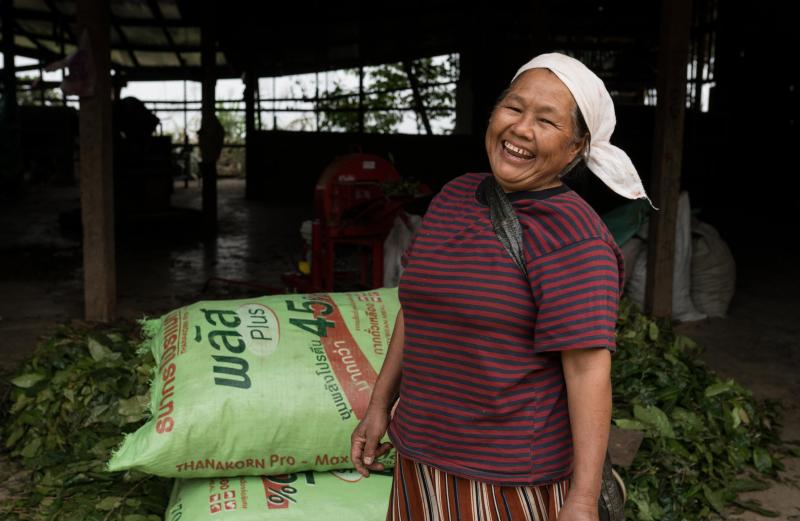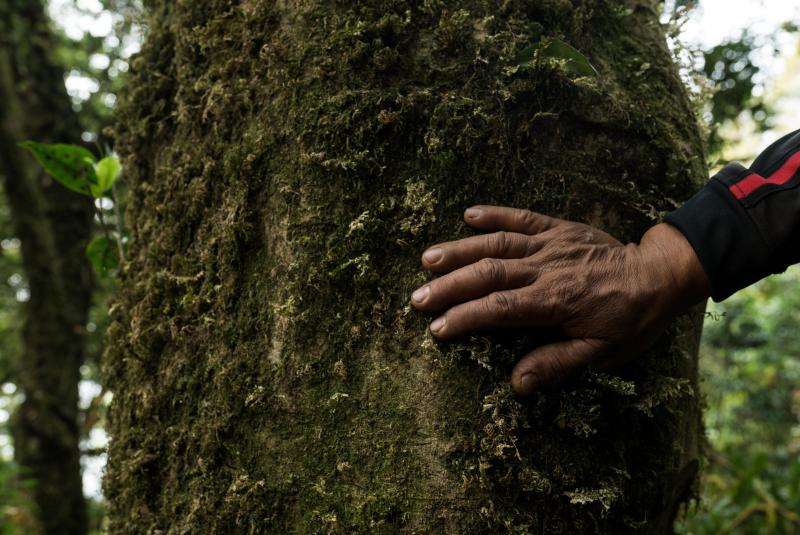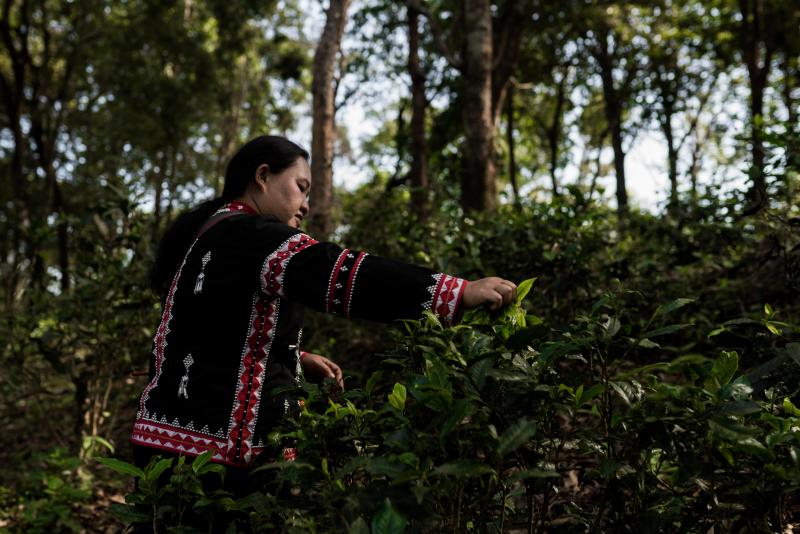Kenneth Rimdahl, CEO of Thailand, Chiang Mai-based Monsoon Tea, had no idea about the wonderful teas in Thailand about two decades back, before he started his business.
As things stand today, Rimdahl has made Monsoon Tea a big name in the forest-friendly tea category in the country, and he’s now planning to make it big in Europe.
“I would have to say that our impact has been pretty large, especially in the past five years,” Rimdahl told World Tea News. “We currently have five tea houses in Thailand, two in Bangkok and three in Chiang Mai, where we also have a restaurant where we cook a lot with tea.”

How Did the Idea of Forest-Friendly Tea Come About?
Rimdahl, who founded his business in 2012, said the idea of growing tea in the forest on a large scale came to him around 20 years ago when he traveled to Thailand to source ceramics for his previous tea company in Europe. “We had grown big enough back then to buy our tea ware directly from the source, and Thailand makes a lot of fantastic ceramics” he said. “At that time, I did not know anything about tea even existing in Thailand until a newfound friend, Vorakarn Wongfu [Aek], introduced me to fermented tea leaves used for eating, called ‘Miang.’”
When Rimdahl first arrived in Chiang Mai, Thailand, he immediately wanted to visit places to drink tea and asked his then guide – but now also partner in the business, Aek – to bring him to local tea places. “What he brought me to at a local market was, however, very confusing, as it didn’t look like any sort of tea that I knew from working with tea in Europe.”
Rimdahl asked Aek to take him to the mountains where they produce the tea, or rather, the “food.” “What he then showed me was amazing,” Rimdahl said. “There were forests but with the tea plant growing in them in harmony with nature.”
After returning back to Europe for 10 years, Rimdahl finally decided to move to Thailand in 2012 to completely focus on growing and selling tea from the forest, to preserve nature and make sure that farmers in the mountains of Thailand could make a sustainable income without having to cut down nature.
“Learning more about tea culture and deforestation in these regions, I eventually came to the point where I decided to only work with forest-friendly tea, meaning tea growing completely in harmony with its surroundings – not dependent on pesticides, irrigation systems or fertilizers,” said Rimdahl.

A Financial Incentive to Become Protectors of the Forest
Convincing the farmers to save the forests is not very difficult, per Rimdahl. “It is very important for us that these farmers make good money by protecting the forests,” he noted. “Otherwise, it’s not sustainable in the long run. We need to make sure that you can make more money by producing forest-friendly tea than you would by producing corn or pineapples in large monoculture plantations. We never preach to farmers about the dangers of climate change and biodiversity loss, but instead provide a financial incentive to become protectors of the forest.”
According to Rimdahl, there’s been an amazing response to the Monsoon Tea products over the past couple of years. “More and more people are becoming concerned with the large questions of climate change and biodiversity loss, and people want to help make a difference,” he said. “It’s also very important that our tea tastes great, so people not only buy it because of the story, but also because they love to drink the tea and become returning customers.”
Rimdahl said they want people to think of forest-friendly tea when they think of tea from Thailand, and they want to create a product that local tea lovers can feel proud of. “So, we try to sell as much tea as we can so we can buy from farmers, only if they preserve the forest or add new forest; if not, we don’t buy and they lose money,” he said. “In this way, the farmers want to protect biodiversity because it’s their income source.”
Rimdahl said they have a large number of wholesale customers and they create tea pairings with some of Bangkok’s best Michelin-starred restaurants. “It is truly a blessing to run a business fully focused on creating a product as sustainable as possible, and then being able to offer it to the rest of the world,” he shared.
In addition to working with top restaurants in Thailand like Le Du, Villa Frantzen and Saavaan, Monsoon Tea works with top hotels in Thailand like Anantara, Four Seasons, Intercontinental and Hyatt. “Internationally, we also work with top chefs in Europe and top coffee and tea houses. Spain’s biggest tea company with more than 100 shops in Spain and Latin America also has a line with our tea under our forest-friendly tea logo,” said Rimdahl.

Launching Forest-Friendly Teas in Europe
Currently, Monsoon Tea is well on its way with European expansion plans under the name Monteaco, with the brand’s first showroom and tea shop now open in Stockholm and more planned for Denmark, Germany and France.“We also plan to open a showroom and shop in the U.S before the end of the year,” revealed Rimdahl, “and now have a large storage in Europe, where we can more easily cater to our international audience.”
Rimdahl said that they continue to expand because there’s growing environmental concern with consumers around the world, and there’s also a growing interest in specialty teas. “This is where we come in and provide a great product that ticks both of these boxes at once,” he said.
What’s Monsoon Tea’s secret to success? “We convince people in Europe much in the same way as we do here in Thailand,” shared Rimdahl. “We don’t convince them. We simply tell our story of how we grow tea to protect nature in Northern Thailand and allow them to taste our teas. This is more than enough to spark people’s interest to the point where they become fans of our product and brand.
Rimdahl said feedback from customers at the new shop in Stockholm has been incredible. “Tea from Thailand is also not as well-known as tea from other countries, which makes it additionally interesting for people to try something new,” he said.
To learn more about Monsoon Tea, visit MonsoonTea.co.th. To learn more about Monteaco, visit Monteaco.com.
Plan to Attend or Participate in the
World Tea Conference + Expo, March 27-29, 2023
To learn about other key developments, trends, issues, hot topics and products within the global tea community, plan to attend the World Tea Conference + Expo, March 27-29, 2023 in Las Vegas, co-located with Bar & Restaurant Expo. Visit WorldTeaExpo.com.
To book your sponsorship or exhibit space at the World Tea Conference + Expo, or to enquire about advertising and sponsorship opportunities at World Tea News, contact:
Ellainy Karaboitis-Christopoulos
Business Development Manager, Questex
Phone: +1-212-895-8493
Email: [email protected]
Also, be sure to stay connected with the World Tea Conference + Expo on social media for details and insights about the event. Follow us on Twitter, Facebook, Instagram and LinkedIn.
